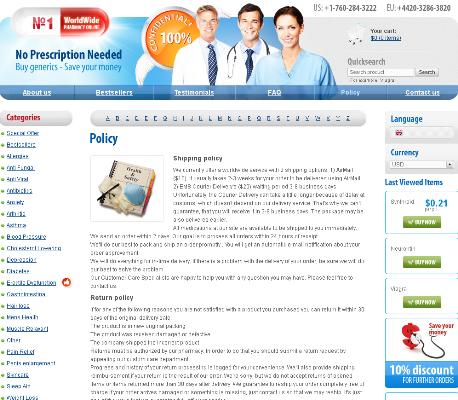Pepcid Vs. Other Antacids: a Comparative Review
Overview of Common Antacids and Their Uses
Antacids are a staple in managing heartburn, indigestion, and acid reflux. These remedies work by neutralizing stomach acid to provide quick relief from uncomfortable symptoms. Among the various products available, common antacids include Tums, Rolaids, and Maalox. Each of these contains active ingredients like calcium carbonate, magnesium hydroxide, or aluminum hydroxide.
| Antacid | Key Ingredient | Primary Use |
|---|---|---|
| Tums | Calcium Carbonate | Heartburn Relief |
| Rolaids | Calcium Carbonate and Magnesium Hydroxide | Indigestion Relief |
| Maalox | Aluminum Hydroxide and Magnesium Hydroxide | Neutralize Stomach Acid |
While these OTC options are effective, their mechanism of action and duration of relief can vary. Understanding these differences can help users choose the most appropriate product for their symptoms.
Key Ingredients in Pepcid and Their Functions

When it comes to Pepcid, the key ingredient that stands out is famotidine. Famotidine is a type of medication known as an H2 blocker, which functions by reducing the amount of acid the stomach produces. This reduction helps provide relief from heartburn and other symptoms associated with acid reflux. Unlike some other antacids that neutralize existing stomach acid, famotidine's ability to decrease overall acid production can offer more long-lasting relief, making it a popular choice for many sufferers.
In addition to its principal ingredient, Pepcid is often formulated with inactive components that facilitate its absorption and effectiveness. Teh inclusion of these substances ensures that the active ingredient is delivered efficiently, providing quick and effective relief from gastrointestinal discomfort. This combination of effective acid reduction and well-thought-out formulation sets Pepcid apart in the crowded market of over-the-counter antacids.
Comparing Efficacy: Pepcid Vs. Common Antacids
Pepcid, a well-known H2 blocker, works by limiting the secretion of stomach acid over an extended period. This makes it particularly effective for chronic conditions such as GERD. On the other hand, common antacids like Tums and Rolaids offer quicker relief but are often short-lived as they neutralize acid already present rather than preventing its production. Notably, studies have suggested that Pepcid can maintain acid reduction for up to 12 hours, giving it a marked advantage in terms of sustained relief.
Another distinction is that Pepcid can be taken prophylactically; individuals can use it before consuming foods that typically lead to heartburn. Conversely, the use of antacids is typically reactive—a remedy taken after discomfort has occured. Thus, Pepcid offers a practical option for both immediate and long-term management of acid-related issues, wich makes it a versatile choice for patients.
Side Effects and Safety Concerns of Antacids

Antacids are widely used to relieve heartburn and indigestion, but not all are created equal. Pepcid, for example, primarily uses famotidine, a histamine-2 blocker that reduces stomach acid production. While effective, some users report side effects like headaches, dizziness, and constipation. On the other hand, traditional antacids containing calcium carbonate or magnesium hydroxide can cause diarrhea or constipation, depending on the active ingredient. It's important to weigh these side effects and potential interactions with other medications. Despite the common belief that antacids are harmless, prolonged use can lead to more severe health issues like kidney stones or altered electrolytes, making it essential to consult a healthcare professional before starting any regimen.
Cost Comparison: Pepcid and Other Antacids
When considering the cost of Pepcid versus other antacids, it's essential to weigh both the sticker price and the longer-term value. Pepcid, known for its effective relief, might run higher than store-brand antacids, but users often note its superior efficacy justifies the investment. While generic antacids do provide a more budget-friendly option, they may necessitate more frequent doses, leading to an increased overall expense.
Regardless, it's crucial to account for the potential difference in relieve speed and duration. Teh table below illustrates a typical price comparison, helping you make an informed choice for managing your heartburn symptoms.
| Product | Average Cost (30-count) |
|---|---|
| Pepcid | $15.00 |
| Generic Antacid | $5.00 |
| Tums | $6.50 |
| Rolaids | $7.00 |
In summary, while Pepcid may seem pricier upfront, its effectiveness might lead to fewer doses and thus, could potentially offer better value for your money, which is a significant consideration for many.
User Reviews and Real-life Experiences of Antacids
Real-life experiences of antacids offer a valuable perspective on their effectiveness. Users of Pepcid often praise its long-lasting relief for chronic heartburn, noting significant improvement within days. One user described how Pepcid allowed them to enjoy spicy foods again without the usual discomfort. Conversely, experiences with other antacids like Tums and Rolaids vary, with some users finding them effective for immediate relief but not long-term use.
Another user recounted how switching from a brand like Zantac to Pepcid made a noticeable difference in sleep quality, as night-time acid reflux declined. People also occasionally report milder side effects with Pepcid, wich they find preferable. Such testimonials help others make informed choices about their antacid options.
Pepcid Overview Pepcid in Clinical Practice
<

